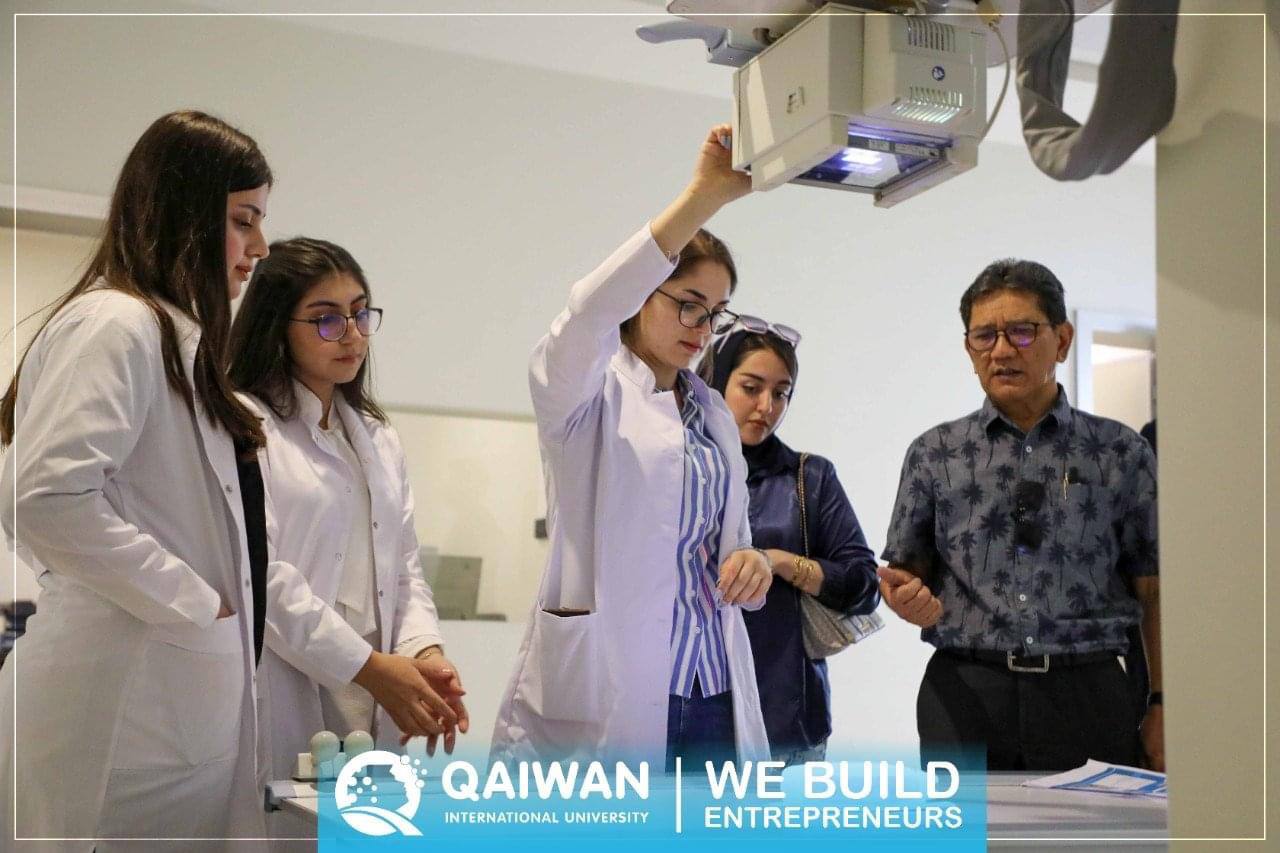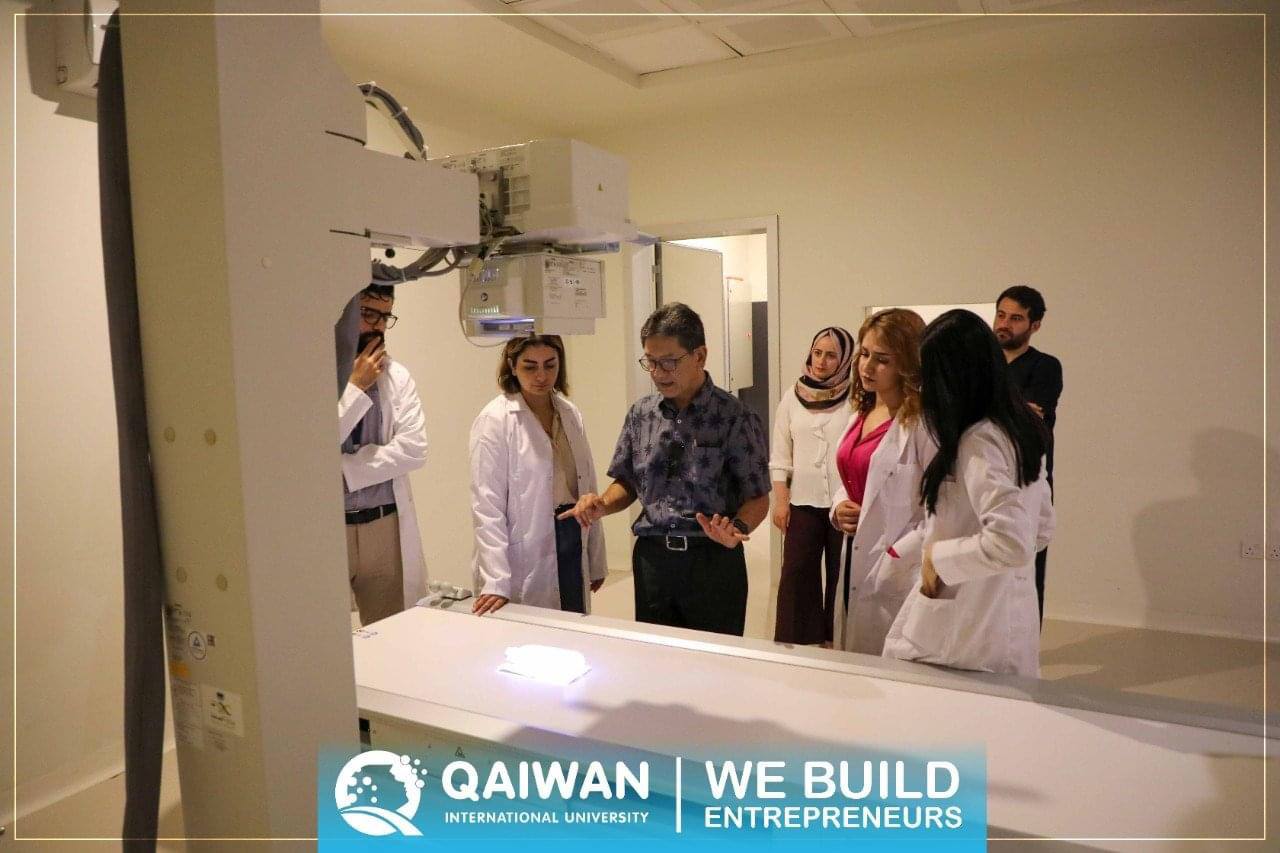The programme offers comprehensive instruction in the fundamentals of medical imaging, both theoretically and practically. Students will acquire the theoretical understanding and clinical competence necessary for interpreting images and supporting intervention procedures. This is a year-round, full-time course of study that accepts new students each fall. The total time commitment for the programme is 4 years (8 semesters). Lectures, labs, clinical rotations, blended courses, and student projects are all part of the curriculum. Per academic session, the curriculum is structured around two main semesters and one optional short semester. In general, students are expected to complete between seventeen (17) and twenty-eight (28) credit hours per semester, or the equivalent, in order to receive credit exemption. Both the theoretical and practical parts of the course are evaluated on the basis of final exams and ongoing assessments.


| 1 | Awarding Institution | Universiti Teknologi MARA (UiTM) |
|---|---|---|
| 2 | Teaching Institution | Qaiwan International University |
| 3 | Programme Name | Bachelor of Medical Imaging (Hons) |
| 4 | Final Award | Bachelor of Medical Imaging (Hons) |
| 5 | Programme Code | HS242 |
| 6 | Professional or Statutory Body of Accreditation | Ministry of Higher Education |
| 7 | Language(s) of Instruction | English |
| 8 | Mode of Study (Conventional, distance learning, etc) | Conventional |
| 9 | Mode of Operation (Franchise, self-govern, etc) | Franchise |
| 10 | Study Scheme (Full Time/Part Time) | Full Time |
| 11 | Study Duration | Minimum: 4 years - Maximum: 6 years |
| # | Classification | Credit Hours |
|---|---|---|
| 1 | Compulsory Modules | 20 credits |
| 2 | Fundamental Modules, Including Basic Sciences | 10 credits |
| 3 | Professional modules to fulfill requirements of discipline |
65 credits |
| 4 | Industrial training modules Including clinical placement |
30 credits |
| 5 | Optional modules Electives | 11 credits |
| Total Credit Hours to Graduate | 136 credit hours | |
PEO (1). Medical Imaging practitioners who are knowledgeable and technically competent in providing medical imaging services to the industry and the society.
PEO (2). Medical Imaging practitioners who are able to critically evaluate and analyse complex medical imaging problems with the combination of numerical and graphical data through a broad range of digital technology.
PEO (3). Medical Imaging practitioners who adopt roles of a leader and team member to a diverse community through effective communication.
PEO (4). Medical Imaging practitioners who demonstrate entrepreneurial skills and engage in lifelong learning whilst adhering to ethics, professionalism and standards of conduct.
| # | PLO | |
|---|---|---|
| 1 | Apply advanced and comprehensive knowledge in the Medical Imaging field. | |
| 2 | Demonstrate competent practical skills in accordance with the Medical imaging code of practice. | |
| 3 | Develop critical thinking, analytical, and evaluation skills in resolving complex issues related to the Medical Imaging field. | |
| 4 | Display a wide range of digital skills to support study and work related to the Medical Imaging field. | |
| 5 | Combine numerical, graphical and visual data for study or work related to the Medical Imaging field. | |
| 6 | Display effective social and collaborative skills within the organization and society. | |
| 7 | Demonstrate effective communication skills confidently, accurately, and coherently to a diverse group of audiences. | |
| 8 | Display leadership quality with autonomy and personal responsibility in performing all related tasks pertaining to medical imaging. | |
| 9 | Display self-advancement through active engagement with lifelong learning and professional development. | |
| 10 | Demonstrate entrepreneurial skills by organizing entrepreneurial activities. | |
| 11 | Display adherence to ethics, professionalism, and code of practice in the Medical imaging field. | |
Graduates will acquire the essential theoretical knowledge and clinical skills for image interpretation and intervention procedures. The degree is recognised and enables graduates to work as Medical Imagists in government hospitals, private practices, research institutions, and colleges and universities.
QIU © All Rights Reserved | by QIU IT-Office | @ 2022 QIU University